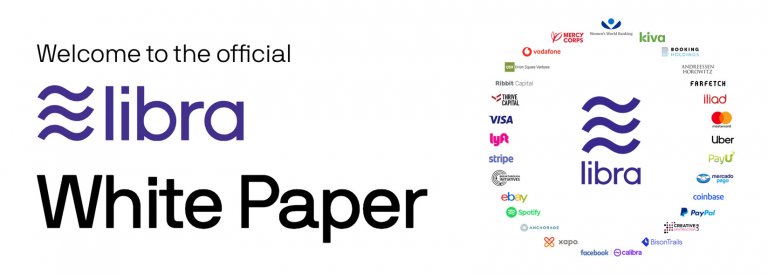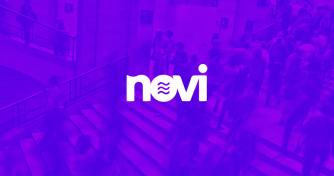 Facebook’s cryptocurrency Libra whitepaper reveals blockbuster partnerships
Facebook’s cryptocurrency Libra whitepaper reveals blockbuster partnerships Facebook’s cryptocurrency Libra whitepaper reveals blockbuster partnerships

Cover art/illustration via CryptoSlate. Image includes combined content which may include AI-generated content.
The official whitepaper of Libra, the highly anticipated cryptocurrency of Facebook, has been released on libra.org, with additional partners.
The Libra Association is established as a non-profit membership headquartered in Geneva, Switzerland and every partner and founding member of the association will run a validator node to process data on the Libra blockchain, which in theory is geographically distributed.
The full list of founding members of the Libra Associations as stated in the Libra whitepaper is as follows:
- Payments: Mastercard, PayPal, PayU (Naspers’ fintech arm), Stripe, Visa
- Technology and marketplaces: Booking Holdings, eBay, Facebook/Calibra, Farfetch, Lyft, MercadoPago, Spotify AB, Uber Technologies, Inc.
- Telecommunications: Iliad, Vodafone Group
- Blockchain: Anchorage, Bison Trails, Coinbase, Inc., Xapo Holdings Limited
- Venture Capital: Andreessen Horowitz, Breakthrough Initiatives, Ribbit Capital, Thrive Capital, Union Square Ventures
- Nonprofit and multilateral organizations, and academic institutions: Creative Destruction Lab, Kiva, Mercy Corps, Women’s World Banking
While there was skepticism towards the structure of the Libra blockchain network prior to the release of its whitepaper, the association has clearly indicated its intent to develop a permissionless blockchain protocol and a proper cryptocurrency.
Decentralization is crucial for a cryptocurrency, Libra is on the right track
For any cryptocurrency, decentralization is key as the purpose of the blockchain is to enable users to process information in the form of transactions, smart contracts, and many more in a peer-to-peer ecosystem without the control of a single entity.

In the beginning, the Libra blockchain network will be centralized to a certain extent with the founding members in the likes of PayPal and Mastercard operating as node operators to settle transactions and various types of information.
Over time, the whitepaper of Libra notes that the plan of the association is to decentralize the Libra blockchain to ensure the native token on the Libra blockchain network operates as a cryptocurrency rather than a token of a permissioned ledger.
The whitepaper read:
“To ensure that Libra is truly open and always operates in the best interest of its users, our ambition is for the Libra network to become permissionless. The challenge is that as of today we do not believe that there is a proven solution that can deliver the scale, stability, and security needed to support billions of people and transactions across the globe through a permissionless network.”
It could spur merchant adoption
As previously reported, Libra will operate as a stablecoin or a basket of stablecoins, representing reserve currencies and real-world assets.
For merchants like Spotify, Uber, Lyft, and Booking Holdings, the stability in the value of Libra is likely to present an easier process of accepting the cryptocurrency as a payment option, which may spur merchant adoption in the cryptocurrency sector.
Throughout the past several years, highly anticipated initiatives to improve merchant adoption have emerged but the overwhelming majority have dissolved due to regulatory uncertainty, issues with scalability, and infrastructure.
Libra aims to create the first blockchain network that could trigger mainstream adoption with major financial institutions, technology conglomerates, merchants, and investors as partners.
The Libra whitepaper added:
“We believe that collaborating and innovating with the financial sector, including regulators and experts across a variety of industries, is the only way to ensure that a sustainable, secure and trusted framework underpins this new system. And this approach can deliver a giant leap forward toward a lower-cost, more accessible, more connected global financial system.”


























































